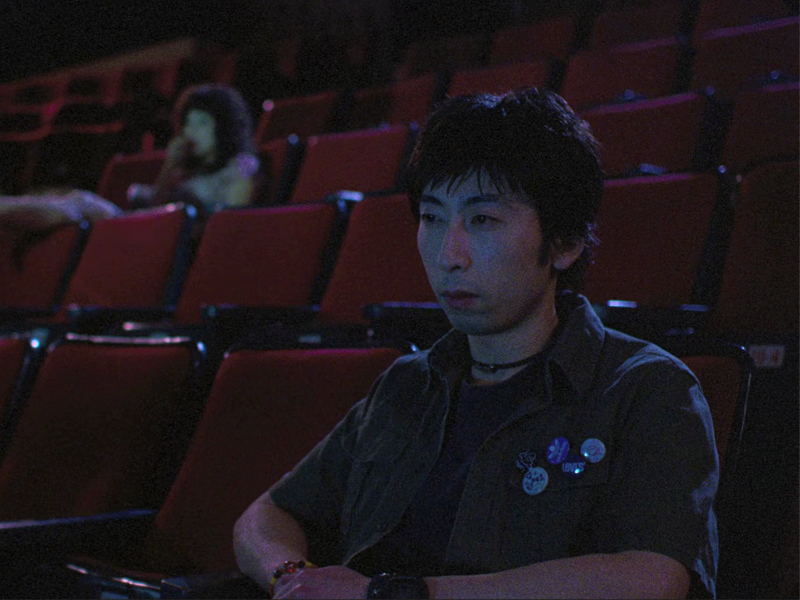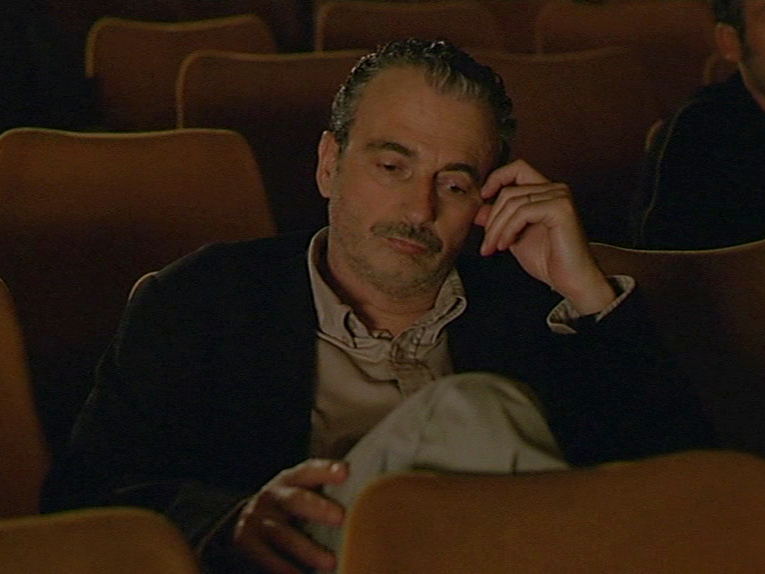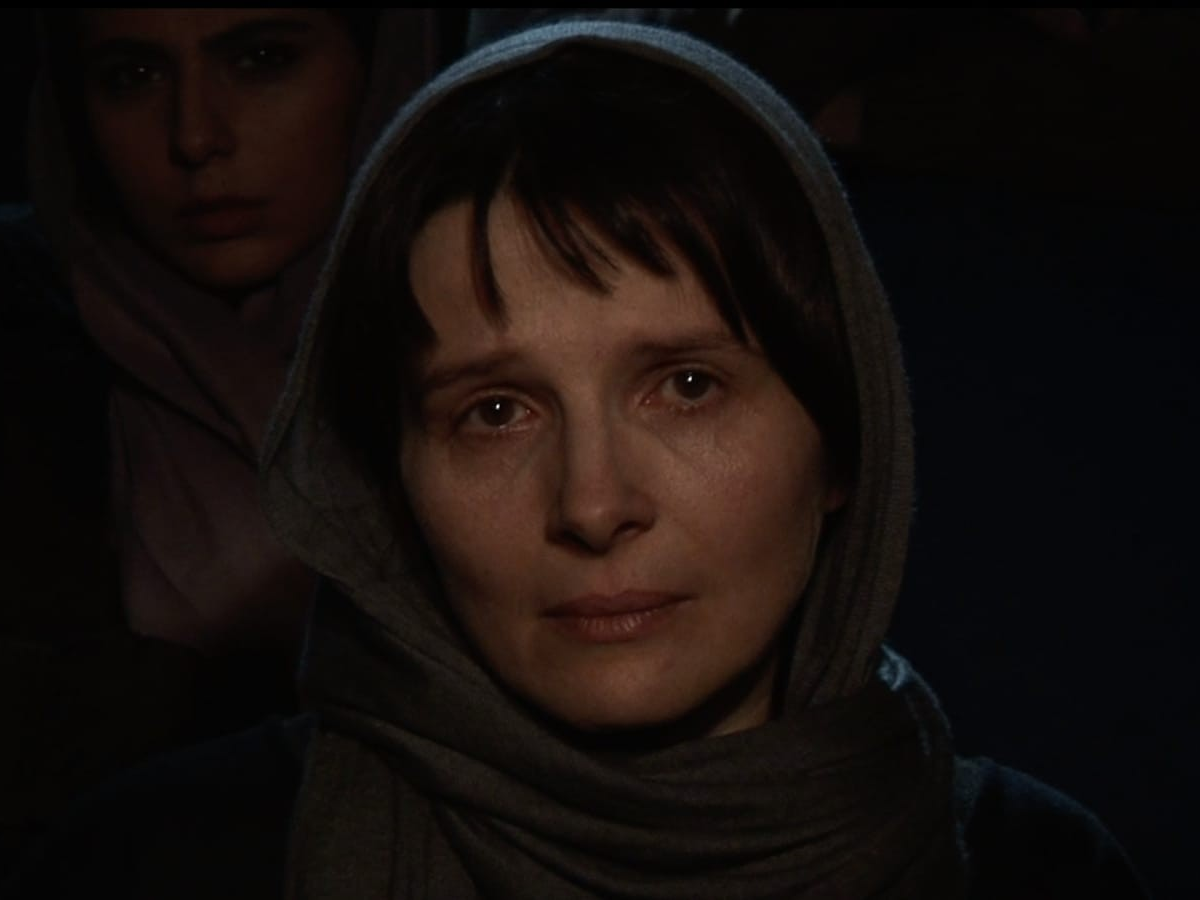The moment has finally come: this week, on Wednesday 9 June, Belgian cinemas will reopen again. The event also brings an (unfortunate) end to Sabzian’s months-long selection from the online offer. On this occasion, Sabzian presents a final selection that pays homage to the space of the movie theatre itself. Reflecting indirectly on an art form declared dead numerous times already, we’ve selected three films from the first decade of the 21st century that are set solely in and around the darkness of the screening room.
Tsai Ming-liang’s Goodbye, Dragon Inn portrays a cavernous, old picture palace in Taipei City which is about to close its doors forever. Tsai turns this rundown movie theatre into a worldly haunted house, populated by a small audience watching King Hu’s wuxia classic Dragon Inn, and the remaining few staff – every one of them haunted by memories and desires evoked by the art of cinema itself, imbued with past and future viewings, giving us a vision of the seventh art’s uncertain future. Last March, Fireflies Press launched their Decadent Editons series – a series of ten books treating ten films from the 2000s. In the first instalment, film critic Nick Pinkerton looks at Tsai’s film and links its partial portrayal of the cinema as a so-called “cruising” spot with another film that also lends it the same role: Jacques Nolot’s La chatte à deux têtes (2002). Also known by its English titles Glowing Eyes and Porn Theatre, the film takes place in an adult movie theatre in Paris. “Goodbye, Dragon Inn is a long, frottage-heavy tease without release, and as such makes an interesting counterpoint to Nolot’s Porn Theatre,” Pinkerton writes, “a film largely given over to matter-of-factly presenting the conventions of negotiating a mano a mano hook-up or group grope in the dark of a cinema. It is worth noting that the multi-hyphenate Nolot is the former lover of Roland Barthes, whose ‘Leaving the Movie Theater’ […] is one of the essential texts on the erotics of the cinema – and for Barthes, like the Tsai of Goodbye, Dragon Inn, ‘cinema’ connotes not only a medium, but also a place: ‘Whenever I hear the word cinema,’ writes Barthes, ‘I can’t help thinking hall, rather than film.’”1 On Sabzian, we previously published Herman Asselberghs’ in-depth reflection on Barthes’ essay. As he writes: “Through Barthes’s succulent, suggestive choice of words, the entire cinema experience grows into an erotic adventure in which all spectators ‘peer through the keyhole’, the author ‘flings itself upon’ the image ‘like an animal’, a climax audible in ‘the grain of a voice milled, up close, in our ears’.”
In Shirin, Abbas Kiarostami points his camera at those spectators themselves. Composed exclusively with portraits of 112 Iranian theatre and film actresses (and Juliette Binoche), the viewing of a Persian love story in a movie theatre only present in the soundtrack and by flickers of light, the faces of the women become screens themselves. The active participation which Kiarostami demands of his spectators is here thematised and radicalised even more unambiguously. In his ‘An Unfinished Cinema’ – a text written on the occasion of the centenary of cinema’s invention and also available on Sabzian – Kiarostami emphasises: “I believe in a type of cinema that gives greater possibilities and time to its audience. A half-created cinema, an unfinished cinema that attains completion through the creative spirit of the audience, so resulting in hundreds of films. […] For one hundred years, cinema has belonged to the filmmaker. Let us hope that now the time has come for us to implicate the audience in its second century.”
Bu san [Goodbye, Dragon Inn] (Tsai Ming-liang, 2003) is available on UniversCiné.
La chatte à deux têtes (Jacques Nolot, 2002) is available on Amazon.
Shirin (Abbas Kiarostami, 2008) is available on Amazon/MUBI and Apple iTunes.
- 1A long excerpt from the book can be read on MUBI Notebook.




